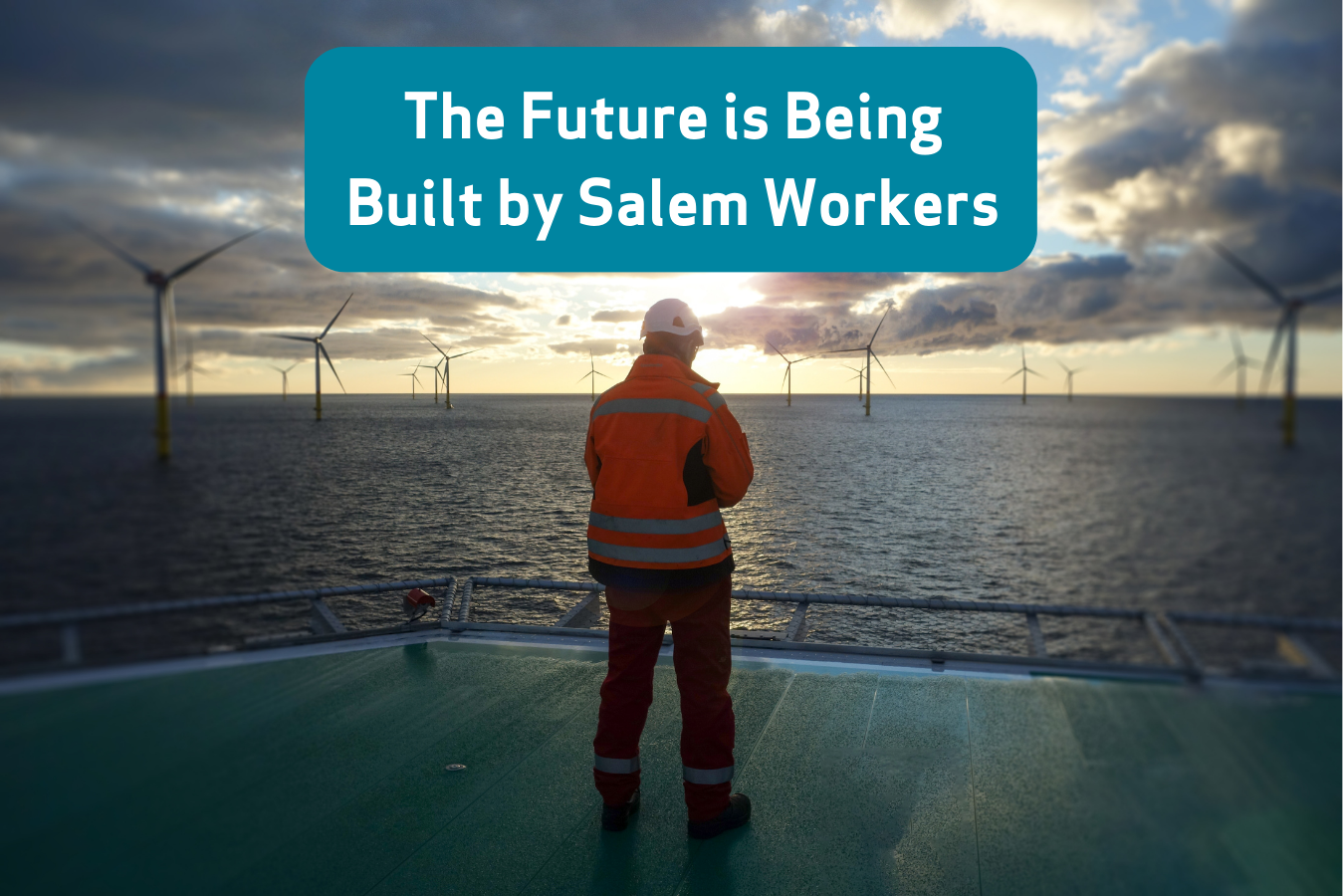
350 years ago, the ships of Salem, Massachusetts sailed the globe bringing valuable trade and wealth to the Commonwealth. Now, Salem is poised to reclaim its maritime heritage and bring family-supporting jobs back to the port by becoming a major player in offshore wind development. And the best part? Local grassroots organizers have successfully pushed for a Community Benefits Agreement ensuring that the new wind turbine marshalling yard is a good neighbor to Salem residents and includes pathways to good, union jobs for local community members historically left out of this kind of opportunity. Salem is modeling the right way to build a renewable future.
Clean Water Action has been engaged with local leaders in Salem since the late 1990s towards a common goal of a fossil fuel and pollution free future for the city. Originally, this work focused on reducing smog, carbon, mercury and soot emissions from the coal-fired power plant with the goal of eventually transitioning away from the coal industry. After the coal plant's closure, Clean Water partnered with Salem community members as they advocated for the site of the plant to remain an industry and jobs hub rather than being repurposed as high-end condominiums. The goal remained to bring good, family-sustaining jobs back to the port.
We are thrilled to report that it’s happening! Salem will host a historic step towards a clean energy future - a wind turbine marshalling yard being developed by Crowley Wind Services. Fittingly, this clean energy project will be located around the Salem Harbor power station in the vacant land once occupied by the coal power plant. The yard will function as a space where offshore wind turbine parts can be stored, assembled, and transported to offshore wind farms off the coast of the Vineyard and eventually Maine and will be a source of good, local jobs for years to come.
But there is even more good news! Thanks to intensive efforts by local grassroots organizers from groups like Salem SAFE, the Latino Leadership Council, and Conservation Law Foundation, union leaders from the North Shore Labor Council, and Clean Water Action, the site’s developers and the city of Salem have created a Community Benefits Agreement (CBA) that locks in victories for local families and workers. A CBA is a contract between a developer and a host community that outlines how the project will benefit the community. The CBA between Crowley Wind Services and Salem is a model CBA because grassroots leaders and partners were at the table from the very beginning, getting transparent commitments that residents can understand and hold Crowley accountable for.
The CBA, officially announced February 23rd, offers specific and measurable commitments for workforce and economic development as well as environmental protections for the local neighborhood. For example, the agreement calls for the use of shore to ship power for ships servicing the construction rather than allowing ships to idle in port burning polluting fuel. (We will, of course, need to continue pushing to ensure this happens, but we are glad to see this in writing as a shared goal.) The agreement also includes hiring benchmarks for local workers and groups often left behind including women, BIPOC workers, language isolated communities, and formerly incarcerated individuals.
This CBA is also aligned with the goals of the Project Labor Agreement, a significant collaboration between environmental organizers, justice advocates, and labor. Clean Water has worked with labor leaders for years to build bridges over shared values. Our collaborative work pushes for a new model that creates high quality jobs in the clean energy industry and can serve as a roadmap for other communities looking to center environmental, racial, and economic justice. We go farther when we go together!
The scale of the climate crisis is staggering, and the sheer size of the problem may cause some to throw up their hands and give up, but our grassroots allies in Salem and our union partners are modeling the path forward. This port, and the wind farms it will support, bring us another step closer to the statewide goal to reduce greenhouse gas emissions to 50% below the 1990 level by 2030. This is what the clean energy future looks like – local communities and residents involved early in the process to ensure that new projects not only don’t harm locals, but also uplift them. What Salem neighbors are building here can be replicated in other communities, so we can build a green economy that powers our homes and empowers workers and families.



